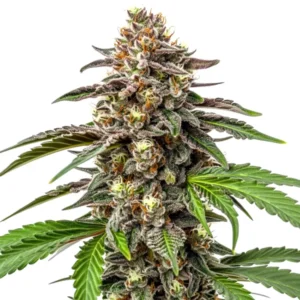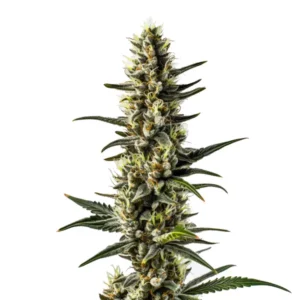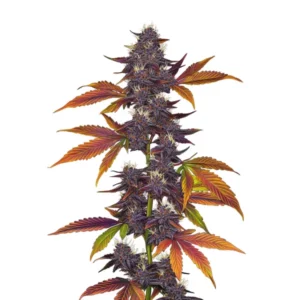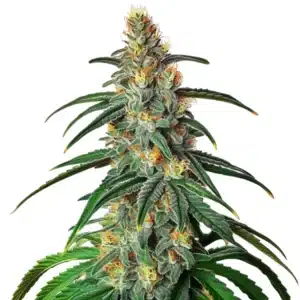
Cannabis for Dogs with Anxiety: A Cautionary Overview
Perspectives on Cannabis for Dogs with Anxiety
Shifting Attitudes and Evolving Insights
Historically, some pet owners explored natural remedies to soothe their anxious dogs. Over time, anecdotal reports led to interest in cannabis for dogs with anxiety, even as cultural attitudes shifted. However, modern veterinary research has revealed serious concerns regarding dosing, toxicity, and unpredictable effects. Current insights stress that even if some trends seem appealing, there is no safe level of cannabis for dogs with anxiety. Experts recommend sticking to proven, safe methods that prioritize canine health.
Recent public interest in natural alternatives has sparked debates online and in pet communities. Despite enthusiastic discussions, scientific evidence consistently warns against using cannabis for dogs with anxiety. Veterinary professionals now emphasize that natural plant compounds meant for human use are not automatically safe for pets.
Recommended Strains
CBD Super Silver (1:1)
|
|
CBD | 10% – 14% (Medium) |
|
|
Type | CBD Feminized |
|
|
Yield | Medium |
|
|
Phenotype | 25% Indica / 75% Sativa |
Amnesia CBD (1:1)
|
|
CBD | 10% – 14% (Medium) |
|
|
Type | CBD Feminized |
|
|
Yield | High |
|
|
Phenotype | 30% Indica / 70% Sativa |
THC, the mind-altering compound found in cannabis, is unsafe for dogs and can actually make anxiety worse. Although some pet owners consider cannabis products to help manage dog THC anxiety, most veterinarians strongly discourage this due to the potential dangers and the limited research confirming their safety or effectiveness. On the other hand, CBD — a non-psychoactive cannabinoid — might provide some relief for anxiety in dogs, but it should only be used under professional veterinary supervision.
Comparing Conventional Approaches with Natural Alternatives
Many conventional veterinary treatments have undergone rigorous testing and approval processes, ensuring their safety and efficacy for treating anxiety in dogs. In contrast, research on cannabis for dogs with anxiety remains inconclusive and raises serious health concerns. Conventional medications, behavior modification techniques, and nutritional interventions offer proven support without the dangers linked to unregulated natural alternatives.
Promos & Deals
Scientific Assessment of Cannabinoids in Canine Anxiety
How Cannabinoids Impact the Canine Nervous System
Laboratory research shows that cannabinoids interact with the nervous system through receptors that regulate stress and mood. However, the canine endocannabinoid system differs significantly from that of humans. Studies indicate that even minimal amounts of cannabis for dogs with anxiety can lead to severe side effects, such as lethargy, vomiting, and in some cases, toxic reactions. The scientific community remains cautious, warning that these compounds may disrupt rather than help the delicate balance in a dog’s nervous system.
Experimental data reveal that while cannabinoids can modulate neural activity, their effects in dogs are unpredictable. Research aimed at evaluating cannabis for dogs with anxiety often finds that dogs metabolize these compounds differently, resulting in prolonged exposure and potentially harmful side effects.
Evaluating Research Data and Safety Concerns
Multiple clinical studies and case reports have attempted to assess the impact of cannabis for dogs with anxiety, yet results remain inconclusive. Most research highlights significant safety concerns, including respiratory depression and altered behavior, which can be life-threatening in dogs. Data collected over recent years consistently show that the risks outweigh any perceived benefits. Veterinary experts now advise that there is insufficient evidence to support the safe use of cannabis for dogs with anxiety.
Published research indicates that dogs exposed to cannabis compounds may experience unpredictable neurological responses. Evaluating these studies, it becomes clear that administering cannabis poses more risks than advantages.

Integrative Strategies for Managing Canine Anxiety
Personalized Treatment Plans for Anxious Dogs
Veterinary professionals emphasize that managing canine anxiety requires tailored treatment plans based on the individual dog’s medical history and specific needs. While some pet owners have considered cannabis as an option, research and clinical consensus firmly advise against it. Instead, veterinarians recommend behavior therapy, approved anti-anxiety medications, and environmental modifications. Customized plans, developed in consultation with professionals, ensure that treatment is both safe and effective.
Each dog reacts differently to stress, so veterinary care must focus on proven therapies. Individual assessments help determine the best course of action, whether through medication adjustments or behavioral interventions. Although some natural products are touted online, experts stress that cannabis for dogs with anxiety is not safe and should not be included in any personalized treatment plan for pets.
Combining Traditional Veterinary Care with Natural Options
Veterinarians often integrate conventional therapies with approved natural options like dietary supplements and calming pheromones to help manage anxiety. While these approaches can provide relief, using cannabis is strongly discouraged due to safety concerns and lack of veterinary endorsement. Traditional treatments are supported by rigorous testing and regulatory approval, ensuring that they offer reliable, safe outcomes for canine patients.
Careful collaboration between pet owners and veterinarians leads to treatment strategies that minimize risk and enhance overall well-being. Natural alternatives that are safe and effective have been identified, while cannabis for dogs with anxiety remains off the table.
Legal, Ethical, and Safety Considerations
Regulatory Frameworks and Veterinary Guidelines
The legal landscape surrounding cannabis use in animals is complex and strict. Regulatory agencies and veterinary boards have issued clear guidelines stating that cannabis for dogs with anxiety is not approved for therapeutic use. These frameworks are designed to protect animal health by ensuring that only products with proven safety and efficacy are used in veterinary medicine. Owners must adhere to these guidelines to avoid legal and ethical repercussions.
Veterinary guidelines emphasize that even small doses of cannabis for dogs with anxiety can result in toxic effects. Legal frameworks enforce strict controls on natural substances administered to animals. As a result, healthcare professionals and pet owners alike are advised to avoid using cannabis for dogs with anxiety, relying instead on treatments that meet established safety standards and ethical practices.
Best Practices for Protecting Canine Health
Ensuring the safety of dogs requires strict adherence to veterinary protocols and responsible pet ownership. Best practices for protecting canine health include using only approved medications and therapies that have undergone extensive safety testing. Despite claims from unverified sources, there is no reliable evidence to support the use of cannabis. Pet owners should prioritize treatments that have been proven safe through scientific research and clinical trials.
Veterinarians recommend that any treatment for canine anxiety be administered under professional supervision. Careful monitoring, proper dosage, and safe storage of medications are essential for avoiding adverse reactions.
Industry Developments in Canine Anxiety Care
Emerging Products and Consumer Trends
Recent industry developments have focused on producing safe, effective products for managing canine anxiety. While some natural supplements and calming aids have shown promise, there is no reputable product that supports cannabis for dogs with anxiety. Consumer trends indicate that pet owners prefer treatments that are scientifically validated and approved by veterinary associations. Market demand drives innovation in products that prioritize safety and quality for animal health.
Innovations in Delivery Systems and Quality Assurance
Technological advances have improved the delivery and quality of natural products designed for canine anxiety. Modern extraction methods and formulation techniques ensure that these products maintain consistent potency and purity. Despite these advancements, no delivery system for cannabis has been validated by veterinary science. Instead, industry innovations focus on products that meet rigorous quality assurance standards, offering pet owners peace of mind with effective, safe alternatives.
Quality assurance programs in the pet care industry emphasize transparency and adherence to strict standards. Every new product undergoes thorough testing, and only those that pass regulatory scrutiny are released.
In-Depth Discussion
The conversation surrounding cannabis for dogs with anxiety is complex, involving historical practices, evolving scientific research, and integrative treatment strategies. Veterinary professionals unanimously caution against administering cannabis for dogs with anxiety due to unpredictable effects and significant safety concerns. Despite some online claims, rigorous studies have not validated the use of natural cannabis products for managing canine anxiety, and their potential risks far outweigh any theoretical benefits.
Researchers have explored various cannabinoids, but the evidence indicates that canine physiology does not handle these compounds safely. Instead, established veterinary treatments and approved natural alternatives offer proven support for managing anxiety in dogs. By integrating careful clinical practices with ethical considerations, the consensus remains that cannabis should never be used, and pet owners must prioritize safe, effective treatments that protect animal health.
Additional Insights on Cannabis for Dogs with Anxiety
Additional insights from veterinary research and regulatory updates reaffirm that cannabis for dogs with anxiety is unsafe. Studies consistently show that dogs metabolize cannabinoids differently than humans, resulting in heightened risk of toxicity. Advanced laboratory techniques have further demonstrated that even low doses can lead to severe side effects in canines. These findings reinforce the stance that pet owners must not use cannabis, and should rely on approved veterinary treatments instead.
Recent market analysis reveals that consumer interest in natural therapies for canine anxiety is high, yet reputable companies and veterinarians focus on safe, alternative methods. Improved diagnostic tools and stress-relief products now offer reliable support for anxious dogs. The collective insights from ongoing research, regulatory updates, and ethical veterinary practices make it clear that cannabis remains an unsafe option, with no place in responsible pet care.
Practical Considerations in Using Cannabis for Dogs with Anxiety
When managing canine anxiety, pet owners must consult licensed veterinarians to determine safe treatment options. Comprehensive evaluations of a dog’s health, behavior, and current medications are essential before considering any intervention. Despite claims circulating online, cannabis for dogs with anxiety is not recommended and poses significant health risks. Instead, owners should explore approved treatments that have undergone rigorous testing and are supported by veterinary associations.
Effective management of canine anxiety involves a multifaceted approach that integrates dietary changes, behavioral therapy, and, when necessary, prescription medications. It is important for pet owners to maintain open communication with their veterinarians and follow prescribed protocols closely. Safe practices, informed by scientific research and ethical standards, ensure that treatment plans protect animal health and promote overall well-being, without resorting to dangerous alternatives like cannabis.
Current Research and Perspectives
Ongoing research in veterinary science continues to evaluate various natural compounds for managing anxiety in dogs, but none support the use of cannabis. Rigorous trials and laboratory studies have consistently shown that cannabinoids can cause adverse reactions in canine subjects. Researchers have focused on safe, alternative natural therapies that do not involve cannabis, emphasizing the need for treatments that are both effective and safe for animal health.
Clinical perspectives from veterinary experts confirm that no reliable evidence supports the use of cannabis for dogs with anxiety. Instead, approved medications and behavior modification techniques have proven benefits and carry a lower risk of harmful side effects. Continuous monitoring and analysis of emerging data reaffirm that cannabis for dogs with anxiety is not a viable treatment option, and owners must prioritize interventions that have been fully validated by clinical research and regulatory standards.

FAQs about Cannabis for Dogs with Anxiety
What are the risks of using cannabis for dogs with anxiety?
Cannabis for Dogs with Anxiety carries significant risks, including toxicity, impaired motor functions, and severe behavioral changes. Studies reveal that even small amounts can lead to vomiting, lethargy, and respiratory issues in dogs. Veterinary experts warn that due to differences in metabolism, cannabinoids can accumulate in a dog’s system, causing unpredictable, dangerous effects that compromise their overall health and well-being, making it a highly unsafe option for managing canine anxiety.
Why should pet owners avoid giving cannabis for dogs with anxiety?
Pet owners must avoid giving cannabis because it has not been approved by veterinary authorities and can lead to harmful side effects. Research shows that dogs are particularly vulnerable to the toxic effects of cannabinoids, which can result in serious health complications. Veterinary guidelines and regulatory standards clearly state that natural cannabis products are not safe for canine use, and alternative treatments should be pursued to ensure pets receive appropriate, secure care for anxiety management.
What alternative treatments are recommended for canine anxiety instead of cannabis?
Instead of cannabis for Dogs with Anxiety, veterinarians recommend proven treatments such as behavior therapy, prescription anti-anxiety medications, and natural supplements that have been clinically tested for safety in dogs. These alternatives are supported by extensive research and are endorsed by veterinary associations. They offer effective management of anxiety symptoms without the risks associated with cannabis, ensuring that pets receive safe, reliable, and appropriately regulated care that prioritizes their long-term health and well-being.




















